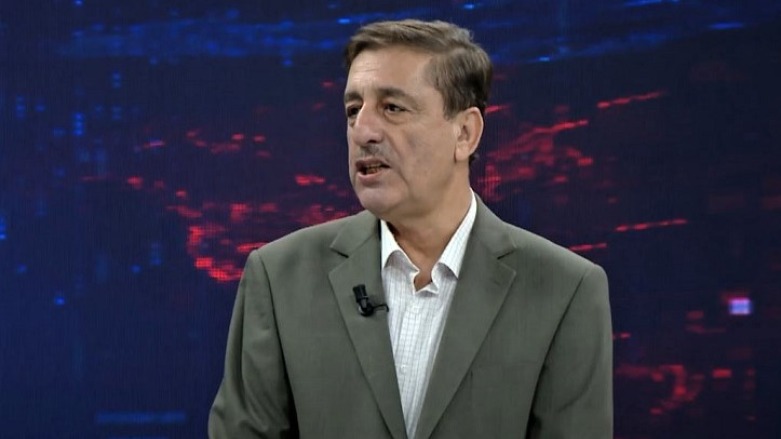Kurdish party to organize protest against fuel price hikes in northern Syria

ERBIL (Kurdistan 24) – Faisal Yusuf, a member of the Executive Committee of the Kurdish National Council in Syria (KNC), told Kurdistan 24 on Thursday that his party would protest the current increase in fuel prices in northeastern Syria (Rojava) in front of a local United Nations office on the following day.
He added that the people will take to the streets adjacent to the UN building in the city of Qamishlo on Friday, at 5:00 in the afternoon.
“There is a famine now, the people need aid. Today these decisions are being made to increase the price of fuel, from bread to transportation, everything is affected,” read a statement in which the KNC called for the demonstration, claiming that the “living situation of the people is getting worse, day after day, because of the rapid and uncontrolled rise in prices of all materials necessary and essential for life.”
Read More: Syrian Kurdish opposition party calls on Kurdish-led administration to stop raising fuel prices
The Autonomous Administration of North and East Syria (AANES), led by the Democratic Union Party (PYD), overturned an increase in the prices of automobile fuel, petrol, and cooking gas in May after widespread protests erupted against the decision in multiple cities.
However, the KNC said the AANES is once again raising the price of diesel, which it characterized as “the substance that automatically raises the prices of the rest of the materials and services.”
There is growing frustration over worsening economic conditions and forced military service in northeastern Syria, all of which is reportedly leading to more migration. As a result, the local administration earlier eased the conditions of local conscription as well.
Read More: Kurdish-led forces in northern Syria ease conscription conditions
The economy has also worsened due to hyperinflation, with the Syrian pound tumbling in mid-2020 against the US dollar.
According to a market assessment published in September by the Reach organization, various consumer prices that increased in mid-summer across northeastern Syria were caused by “both the Turkish Lira (TRY) and SYP (Syrian Pound) (in the month of July) depreciated slightly against the USD, reversing a positive trend of appreciation seen in the last three months.”
The administration said it was also forced to raise the price of bread due to water scarcity and drought conditions in northeastern Syria that negatively affected agriculture crops, including detrimental effects on wheat production and food security.
Abdul Karim Omar, the co-chair of the Administration’s Department of Foreign Relations, told a Swedish delegation during the repatriation of nine Swedish nationals on Sept. 7 that northeastern Syria is suffering from a dire economic crisis.
“If the international community does not support these areas economically, it will be an opportunity for ISIS to reorganize itself,” he said, according to a Hawar News Agency report.
The protests decision by the KNC came amidst an AANES delegation visiting Washington in the United States, and a delegation of the National Coalition of Syrian Revolution and Opposition Forces (known in Arabic as Etilaf), which includes KNC officials, visiting New York on the sidelines of the UN Assembly meeting.
The KNC, which is part of the Turkey-based Syrian Arab opposition, has been in several political disputes with the local PYD-administration of Syria’s Kurdish-held northern areas.
The two parties previously held talks for several months following an initiative by Syrian Democratic Forces (SDF) Commander-in-Chief Mazloum Abdi in November, supported by the US, to resolve their long-standing disputes.
However, since the US presidential elections that month, the talks have been suspended.
US officials have recently held separate meetings with both sides and underlined continued support for the intra-Kurdish dialogue without much success.
Yusuf told Kurdistan 24 they would convey “the people’s” demands during their meetings with officials in New York.